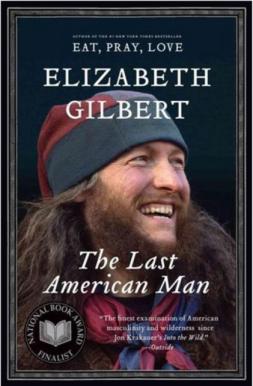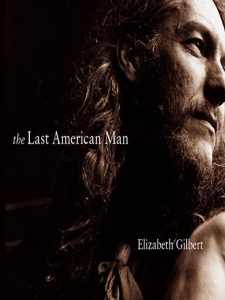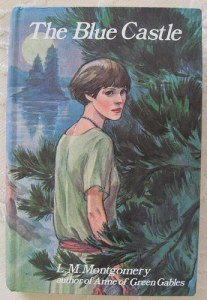 I thoroughly enjoyed this biography of Eustace Conway, written by Elizabeth Gilbert, and finished it buried under and afghan on my very first snow day last week. My friend Vessie recommended this book, and as soon as my local library was kind enough to get the volume to my branch, I devoured it. I haven’t ready Gilbert’s more famous novel ‘Eat, Pray, Love’, since nobody I’ve come across has enthusiastically recommended it. But this book is another story. I enthusiastically recommend it. And Vessie enthusiastically recommends it.
I thoroughly enjoyed this biography of Eustace Conway, written by Elizabeth Gilbert, and finished it buried under and afghan on my very first snow day last week. My friend Vessie recommended this book, and as soon as my local library was kind enough to get the volume to my branch, I devoured it. I haven’t ready Gilbert’s more famous novel ‘Eat, Pray, Love’, since nobody I’ve come across has enthusiastically recommended it. But this book is another story. I enthusiastically recommend it. And Vessie enthusiastically recommends it.
Wow. My fingers are exhausted from typing out “enthusiastically.” Seriously–type it out three times in a row and your finger muscles will start feeling strangely weak.
Ah, the hard life of an office worker and blogger.
Anyway! Gilbert writes from an enticing perspective, as a personal friend of the Conway family. She interviewed not only Eustace, but his family, friends, acquaintances, and students in order to get a full-bodied view of who he is. I think she did a fabulous job at being objective but also adding that intimate note that only a personal friend could achieve. Her praise of him is exuberant, but not unfettered. I think she presents a wonderful, multifaceted portrait of a man who may seem very simple on the outside, but who has massive complexities hiding right underneath his wildman’s skin.
This is a man who got straight A’s in college, and lived in a teepee during his entire undergraduate career. He roamed the campus in bucksin, and gutted and skinned an animal on the first day of his Anthropology class, to the wonderment of his classmates. He dumpster dives, and picks up roadkill for dinner. He sews his own clothes, and gives himself stitches if he suffers an injury. He hiked the entire Applachian Trail, surviving on whatever he could hunt or gather along the way. He even rode a horse across America from coast to coast. About his cross-continental horseback ride, he said “Right now I’m as free as anyone in America. It’s so satisfying to be here, away from responsibilities, I wish more people had the simple life.”
dives, and picks up roadkill for dinner. He sews his own clothes, and gives himself stitches if he suffers an injury. He hiked the entire Applachian Trail, surviving on whatever he could hunt or gather along the way. He even rode a horse across America from coast to coast. About his cross-continental horseback ride, he said “Right now I’m as free as anyone in America. It’s so satisfying to be here, away from responsibilities, I wish more people had the simple life.”
Eustace sees himself as a Man of Destiny, a kind of missionary to the American people, encouraging them to reconnect with nature, make a change, and ultimately move back into the wilderness. Gilbert ties the story of Eustace’s life into the story of the American frontier, in which (unlike the European story of manhood with involves citifying the peasant boy) men leave the city and strike out into the wilderness. Likening his combination of wily business sense, initiative, and love of nature to men such as Davy Crockett or Daniel Boone, she places him in a truly fascinating historical context.
The story was a little heartbreaking for me. Eustace’s father (also named Eustace) was very hard on him, and you can see that trait reflected in Eustace himself, especially as it plays out in his romantic relationships. He is so driven that there almost seems to be no room for tenderness, or for compassion. Interestingly enough, Davy Crockett and Daniel Boone were also the sons of violent and irate fathers, and they fled to the frontier to get away from their childhood homes, much as Eustace did when he was 17.
Gilbert closes out the book with a very personal question, wondering if Eustace will be able to achieve his dream of finding love, and marrying a woman who will be 100% behind his mission. She surmises that it comes down to a question of control: can he let go enough to allow the disorder of love into the meticulous and well-structured universe he’s built around himself?
This book gave me a lot of personal food for thought, especially since I was simultaneously reading Philip Yancey’s excellent book “What’s So Amazing About Grace?” It struck me that sometimes the most brilliant and driven people of this world, the geniuses so to speak, have the most trouble offering grace to others. And not just the geniuses, but each of us in our area of greatest strength. For example, it’s hard to be tolerant of slow learners when you understand things immediately. I remember having this very struggle when I was in high school Math, and floundering students would ask me to study with them and prep them for the exam. I hope I came across as a kind and willing helper, but inside I frequently had a slew of ungracious thoughts: What’s their problem? I got it as soon as the teacher explained it! They’re probably just not trying. From there, it’s only a skip and a hop to a state of contempt–or perhaps it already is.
While reading about this man of brilliance, I was reminded that as much as we can and should work to perfect our God-given talents and personal strengths, they all begin as gifts. Gifts! Some people are smarter. Some people run faster. Some people are whizzes with languages, while others can’t seem to hack up enough phlegm to really nail that French ‘R.’ Some people are excellent spacial visualizers, however some are directionally impaired (cough cough . . . um, me). And I find that we are tempted to be ungracious with others particularly in our areas of strength. We desperately need humility, because pride drives out love. I need to tell myself (and tell myself often) that it doesn’t matter if I’m right, and it doesn’t matter if my way is best if I am lacking love. Contempt and pride can get the job done, sometimes in a very practical and extremely efficient way, but they will stagnate love at its very roots. Grace and humility, on the other hand, are the channels through which love can freely flow.
Anyway, read ‘The Last American Man’–I guarantee it will provoke you to thought in many areas, and entertain you to boot. Which is everything that a good book should deliver.

 , shocked at this ‘new’ Valancy who speaks exactly what’s on her mind.
, shocked at this ‘new’ Valancy who speaks exactly what’s on her mind.